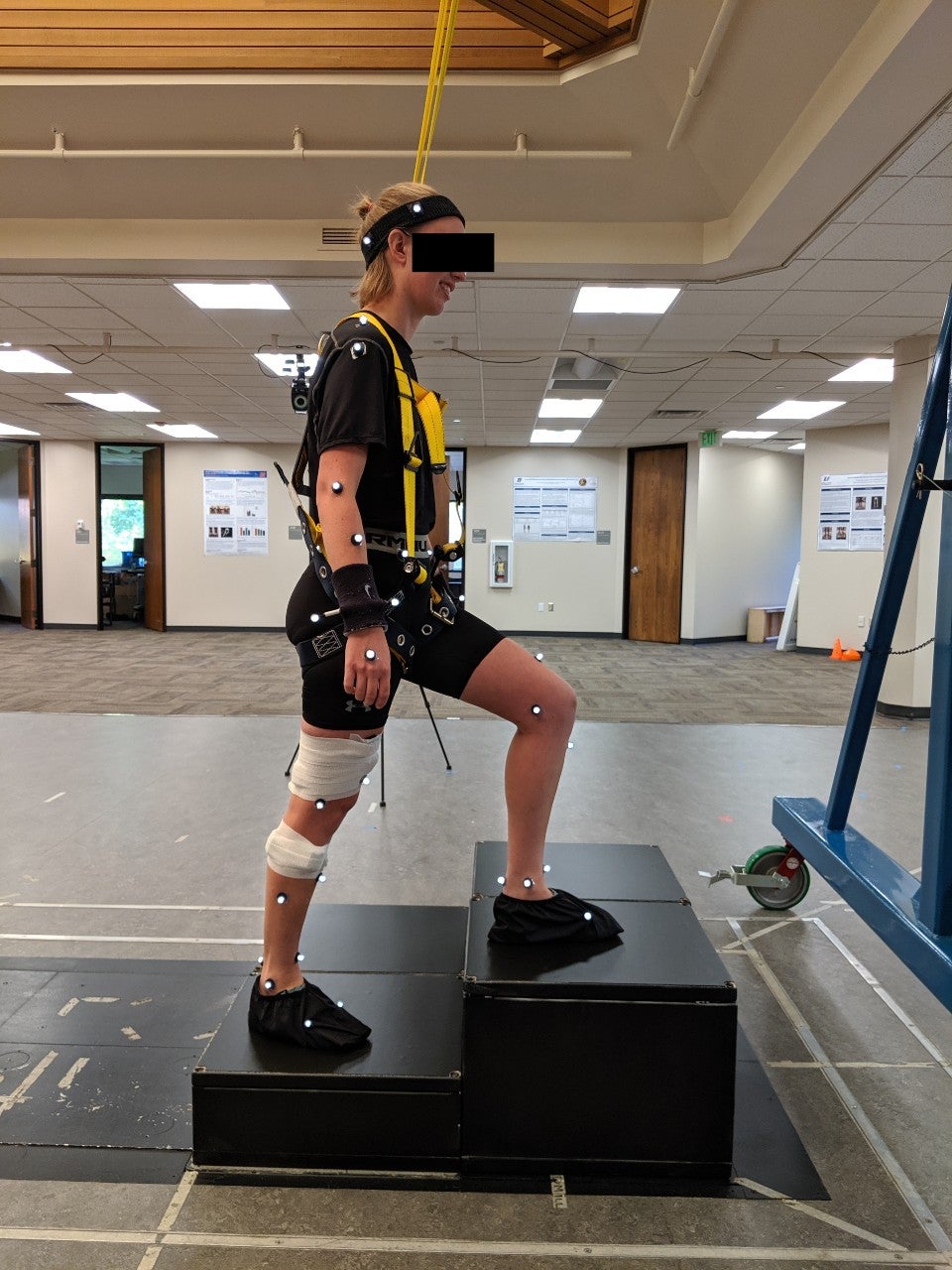
If you encounter a challenging surface or condition while going about your regular daily activities, your body will adapt automatically in order to improve or maintain stability and balance. However, this ability to adapt to changing or challenging circumstances changes as you age, in part as your muscles naturally get weaker and you decrease involvement in some activities, sometimes resulting in an accidental fall.
The Computational Biosciences Program is recruiting volunteers to participate in a research study. Specifically, the research team is seeking older adult males who:
-
-
- are over the age of 65
- have experienced an accidental fall in the past 12 months
- have no history of significant lower limb or back injury/surgery
-
Your participation in this study will help to investigate just how your body adapts to these external conditions and how these adaptation strategies differ between young and older adults. Results of this study may be used to inform targeted muscle training programs to improve whole-body function and reduce risk of injury.
About the overall study
Musculoskeletal adaptation of young and older adults in response to environmental, physical, and cognitive conditions
The Center for Orthopaedic and Biomechanics Research at Boise State University is conducting a research study and needs your participation.
The purpose of the study is to learn how the musculoskeletal system responds to challenging external conditions (low-friction flooring; load-bearing; dual cognitive task) and how this response differs between young and older people. To participate in the older cohort, you need to be 65 years or older and have sustained at least one accidental fall in the past 12 months.
Participation
-
-
- Two biomechanics sessions (one 1-hour session, one 2-hour session) at the Center for Orthopaedic and Biomechanics Research (COBR) on Boise State campus and one 1-hour session in a nearby medical imaging center.
- MR images of your knee will be acquired along with full-body video motion capture.
- Activities include: Gait, stair ascent/descent, pivot turn.
-
Compensation
Participation is voluntary and you will be compensated $50 if you complete the study.
If you are interested or have any questions, please email:
-
-
- Centre for Orthopaedic and Biomechanics Research at cobr@boisestate.edu
- Amy Holcomb, Computational Biosciences Laboratory at amyholcomb@u.boisestate.edu
-
This research is conducted under the direction of Dr. Clare Fitzpatrick, Principal Investigator, BSU IRB 126-MED19-021